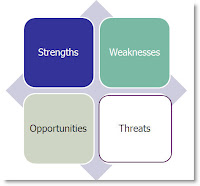
You might have heard the famous story of Everybody, Somebody, Anybody and Nobody. This is how the story goes:
"An important job had to be done and Everybody was sure that Somebody would do it. Anybody could have done it, but Nobody did it. Somebody got angry about that because it was Everybody's job. Everybody thought that Anybody could do it, but Nobody realized that Everybody wouldn't do it. It ended up that Everybody blamed Somebody when nobody did what Anybody could have done."
Do you realize what was the underlying problem in this story? Well, there was no job description!
Job description defines a list of tasks an individual is supposed to undertake as a part of his/her job. It ensures that work is evenly and appropriately divided and is timely executed. Job description, in short, assigns fixed responsibilities to every member of an organization. For many Nepali organizations, job description seems to be only a theoretical concept that has no room for implementation. But, we already know what happens in the absence of job description - a job that can be done by everybody, somebody or anybody will be done by nobody.
Take an example: Your organization is holding a training session for five days. The person organizing this training says that he needs some stationery for the training. There are four of you present when he expressed his stationery requirement. However, none of you have a job description. Thus, none of you know whose responsibility it is to order stationery. Hence, no one orders the stationery and when the training is set to begin and no materials are available yet, the organizing personnel gets angry at everybody. Everybody then gets angry at each other because they think they were scolded for someone else's fault. Each one begins to think that the other person is incompetent. This consequently results in an environment of mistrust and negativity.
Whenever a position is filled, it is important to define the roles and responsibilities for that position. One must know what one is supposed to do. Here are the key risks of having no job description:
- A culture of blame. If no one has their work and responsibilities defined then when something goes wrong, they can easily blame it on someone else. This promotes a culture of blame rather than a culture of support and team work in the long run.
- Mistrust and negativity. As the culture of blame starts to take its root in an organization, mistrust and negativity are the obvious consequences and the worst working environment is the one surrounded by negativity.
- Demotivation. Suppose a task needs to be done and everyone steps up to complete that task. You won't feel important because everyone else is there to do the job. "Who needs me?" - you think. Now, suppose a task needs to be done but no one steps up to do it. You have to do all the work on your own every time. You think again - "Why does everyone think I'm a machine?" In both cases, you are demotivated to work.
- Overstaffing/Understaffing. When the components of each task is defined and divided then an organization can know exactly how many people they need. In the absence of it, there is greater risk of having staffs either more or less than the requirement.
- No proper grounds for performance appraisal. An employee's performance is evaluated based on how well he/she does his/her assigned work. In the absence of a job description, there will be no grounds for performance appraisal.
- No motivation for improvement. If the task at work is everybody's and nobody's responsibility then one does not feel like giving one's best or using one's ideas for improvement. After all, it's human nature to work for one's benefit. If there is no grounds for performance appraisal due to the absence of job description, there is obviously no motivation for improvement.
- No personal responsibility. If the management of an organization does not define the job of its members then no one will step up to assume responsibility. The common excuse might be, "Why should I do it?" However, if the job is defined properly then responsibility no longer is an option. One must take responsibility for the activities outlined as per the job description.
- Loss of good people. As the organization builds itself into a one that's filled with negative environment where there is rampant mistrust and negativity and the staffs are highly demotivated, any good person who's hard-working, smart and believes in taking individual responsibility is eventually going to leave. The key asset of any organization are its people and the inability to retain proactive and smart people is obviously a serious case of concern.
For the proper management of human resources in an organization and the smooth flow of operations, forming a job description for all staffs is a must. This, however, does not mean being too rigid and avoiding all tasks that lies outside one's area of responsibility. Helping other out and doing new things does no harm to anyone. An individual can always have some core responsibilities and can have other supplementary tasks where he/she can be of assistance. However, one has to avoid the story of Everybody, Somebody, Anybody and Nobody in an organization and develop a job description for all.







.jpg)




